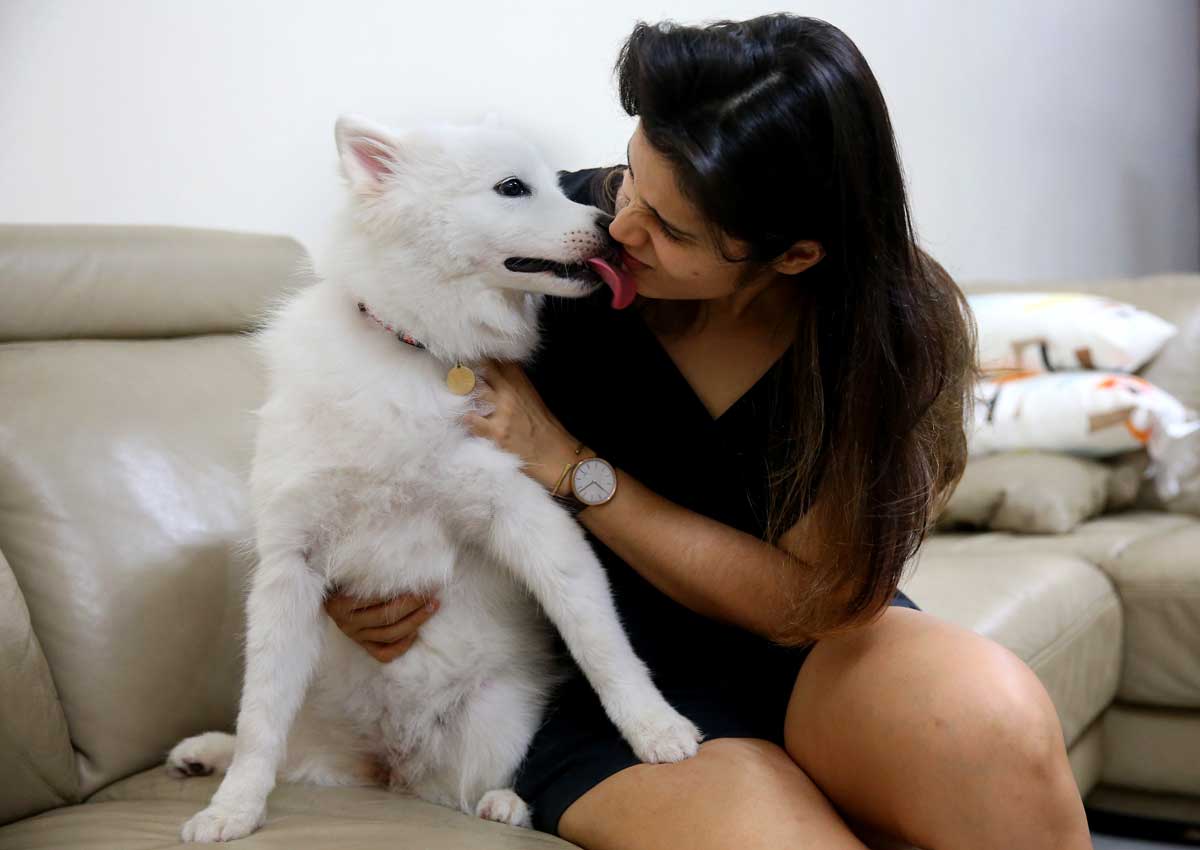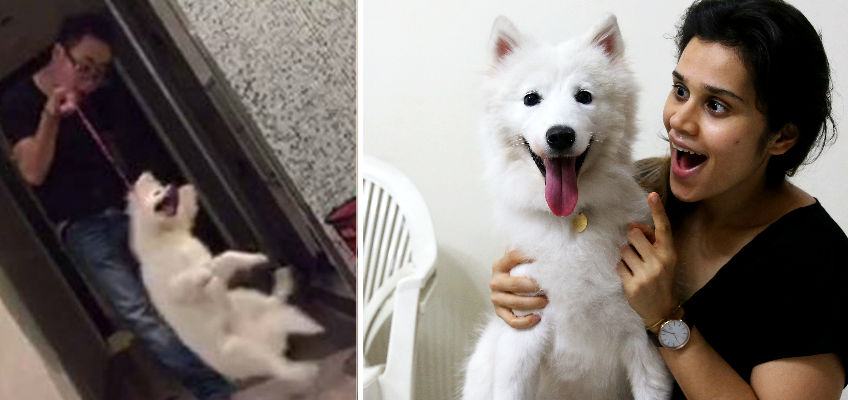It was seen being beaten on the head, lifted off the ground by its collar and swung around in mid-air.
In October last year, the alleged abuse of a six-month-old puppy that was caught on video sparked a furore here.
After the video went viral, the dog, named Pumpkin, was rescued by the Society for the Prevention of Cruelty to Animals (SPCA) and put up for adoption.
At least 20 people applied to adopt the puppy, said the SPCA. (See report on far right.)
Today, the 10-month-old dog has a new home, a new life and a new name.
Its new owner, Ms Gourie Pandey, 26, a part-time cycling instructor, told The New Paper that she renamed the dog Liska, which means fox in Czech.
“I don’t understand how anyone could treat a dog like that, especially a puppy,” she said.
Related story: Shocking video shows guy dangling dog by its neck on leash
“I didn’t want her to be associated with her old name and her horrible past. So I gave her a new name for her to start a new life – one that’s happier.”
The New Paper visited Ms Pandey’s semi-detached home in Kovan last Thursday and an excited Liska was at the gate to greet us.
As soon as we were inside, it jumped on us, nuzzled against us and followed us everywhere during the hour-long interview.
But Liska, a cross-breed between a Japanese spitz and a samoyed, was not as friendly when she was first adopted, said Ms Pandey.
In the first two weeks, it was sullen and quiet, and displayed an adverse reaction to loud, metallic noises.
“Maybe it was also that she was in a new environment,” said Ms Pandey.
But perhaps the most telling was how Liska hated wearing a collar around her neck, she added.
In the video, Liska’s former owner was seen yanking its leash, which was attached to a collar around its neck, and lifting the dog off the ground.
Ms Pandey said: “Initially, Liska really hated wearing a collar. She would try to bite it off. It took a month for us to get her used to it.”
PSYCHOLOGICAL DAMAGE
Animals, like humans, suffer psychological damage and take time to recover, veterinarians told TNP. (See report on right.)
Ms Pandey said she first watched the video sometime in November last year, just as she was looking to adopt a dog.
She jumped at the chance when she found out that the SPCA, through its Facebook page, had put Liska – or Pumpkin, as it was known then – up for adoption.
“I was always looking to adopt a dog from a shelter because there are so many of them who need to be cared for,” she said.
“I knew there would be many people interested to adopt Liska, but I didn’t rush down or anything.”
Ms Pandey said she visited SPCA, which was then at its old premises in Mount Vernon, on Nov 23 to do the adoption paperwork.
“Perhaps it’s fate because they called me the very next day and said I got her. I was overjoyed,” she said.
Today, Liska is toilet trained and understands basic instructions such as to sit and follow its owner.
Ms Pandey, who is its main caretaker, feeds, bathes and grooms the dog. She also takes it for hour-long walks at East Coast Park or Punggol Park almost every day.
“As an owner, you have the responsibility to care for and love your pet,” she said.
“Liska has also brought my family closer because everyone loves her to bits and chips in every now and then to care for her. She’s our bundle of joy.”
Lasting effects of abuse
Dogs, like humans, do suffer some form of post-traumatic stress disorder after they are abused, veterinarians told The New Paper.
Dr Jason Teo, a vet and owner of Point Veterinary Surgery who has over 14 years of experience, said he has seen many cases of dogs becoming withdrawn and different after they are abused.
He also took in a shiba inu (a spitz-style dog) that had been locked in a small toilet for many years by its former owner.
“Today, it still gets aggressive easily, is very hesitant towards humans and has a deranged look in its eyes. There’s a chance it will never be the same again,” Dr Teo said.
The rate and length of recovery depend on each dog’s personality and character, he added.
“Some dogs will remember and take the abuse to heart forever. Some are more happy-go-lucky and tend to forget after a while.”
Dr Rachel Tong of Spring Veterinary Care said owners can help their pets get over their unhappy pasts through actions of positive reinforcement.
“For example, if your dog hates wearing a leash, make it wear one while giving it a treat,” she said.
“That way, it will come to change the association to something that makes it happy.”
Dr Tong said there is no definite period of post-trauma recovery, which could take as long as a year.
“Be patient and dedicated. Once you gain your pet’s confidence and trust, then you can slowly modify its behaviour and help it,” she said.
Dr Teo agreed, saying: “The way to recovery is very simple: Just love your dog, properly care for it and make it feel comfortable in your home.”
rloh@sph.com.sg

This article was first published on March 14, 2016.
Get The New Paper for more stories.





















